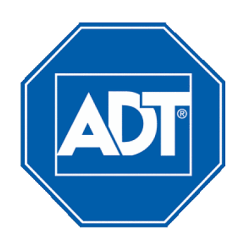Top Class Actions’s website and social media posts use affiliate links. If you make a purchase using such links, we may receive a commission, but it will not result in any additional charges to you. Please review our Affiliate Link Disclosure for more information.

U.S. District Judge Jon S. Tigar tossed claims brought by plaintiff Michael Edenborough, stating he failed to allege how his reliance on ADT advertising statements constituted violations of the California Consumer Legal Remedies Act (CLRA) and Unfair Competition Law (UCL).
“Here, while Plaintiff alleges he suffered from ADT’s ‘unlawful, unfair, and deceptive’ business practices, his opposition brief only discusses Plaintiff’s claim ‘under the fraudulent prong of the UCL,” Judge Tigar stated when granting ADT’s motion to dismiss.
Still, Judge Tigar sided with Edenborough on his claims of fraudulent omission, telling the parties that the plaintiff sufficiently alleged that ADT’s purported knowledge of the wireless security system vulnerability to hackers was essential to Edenborough’s decision to purchase the wireless home security system.
Edenborough, a California resident, filed the class action lawsuit against ADT in March. He alleged that he relied on the company’s television advertising and website when deciding to have ADT’s wireless security system installed in his home in 2012.
However, unbeknownst to Edenborough ADT’s wireless home security systems utilize radio transmissions with “unsecured and unencrypted protocols.”
Specifically, Edenborough asserts that these transmissions are “insufficiently protected from intrusion and interference by unauthorized third parties who can readily turn the wireless sensors off.”
The lawsuit references a report from Forbes magazine, that showed “such hacking can be easily accomplished by anyone who obtains software and electronics that are easily available, in some cases for free.”
Edenborough alleges that ADT knew or should have known that its wireless security systems have been vulnerable to hacking since 2012 but actively concealed this vulnerability.
“ADT is under a duty to disclose…its wireless home security systems’ lack of encryption, lack of authentication, and other severe vulnerabilities but never disclosed these facts to Plaintiff or other California consumers.”
But ADT challenged Edenborough’s allegations, calling them unspecific and inadequate since he could not definitively prove the company knew about potential hacking vulnerabilities in 2012.
Still, Judge Tigar ruled for Edenborough on this claim, stating that “[Edenborough] need not specify in detail the exact methods of hacking to which ADT knew its devices were vulnerable. Rather, plaintiff need only generally allege that ADT had knowledge of, and withheld, a material fact: that its devices were unencrypted and vulnerable to hacking.”
In his complaint, Edenborough argued that the makers of the ADT wireless home security systems disclosed to ADT that the systems were vulnerable to hackers and that ADT acknowledged this in its own 2016 statement.
“While this admission occurred nearly four years after plaintiff’s purchase, the admission, when combined with the previous two allegations tied to 2012, allows the court to plausibly infer that ADT knew of the alleged vulnerability by the time the wireless security system was sold to plaintiff in 2012,” Judge Tigar concluded.
Edenborough is represented by Mark Chavez and Dan Gildor of Chavez & Gertler LLP.
The ADT Security Hacking Susceptibility Class Action Lawsuit is Edenborough v. ADT LLC, Case No. 3:16-cv-02233, in the U.S. District Court for the Northern District of California.
UPDATE: On Jan. 24, 2017, ADT agreed to settle five separate class action lawsuits filed by consumers who claim the company misled device owners about the vulnerability of their home security systems to hacking.
UPDATE 2: On March 23, 2017, new details regarding the ADT settlement were released. According to court documents, ADT will pay $16 million to end the five different class action lawsuits. Class Members are expected to receive $15 or $45 based on when they signed their contract with ADT.
UPDATE 3: November 2017, the ADT home security hacking vulnerability class action settlement is now open. Click here to file a claim.
UPDATE 4: On Sept. 18, 2019, Top Class Actions viewers started receiving checks worth as much as $50 from the ADT class action settlement. Congratulations to everyone who filed a claim and got PAID!
ATTORNEY ADVERTISING
Top Class Actions is a Proud Member of the American Bar Association
LEGAL INFORMATION IS NOT LEGAL ADVICE
Top Class Actions Legal Statement
©2008 – 2024 Top Class Actions® LLC
Various Trademarks held by their respective owners
This website is not intended for viewing or usage by European Union citizens.















3 thoughts onADT Hacking Vulnerability Class Action Trimmed to Fraud Claim
UPDATE 2: On March 23, 2017, new details regarding the ADT settlement were released. According to court documents, ADT will pay $16 million to end the five different class action lawsuits. Class Members are expected to receive $15 or $45 based on when they signed their contract with ADT.
UPDATE: On Jan. 24, 2017, ADT agreed to settle five separate class action lawsuits filed by consumers who claim the company misled device owners about the vulnerability of their home security systems to hacking.
ADT is one of the worse companies in the entire USA I tried to sue them my mom had a stroke in California to I moved they failed to pause my service and they refused to cancel
How do I join a claim..